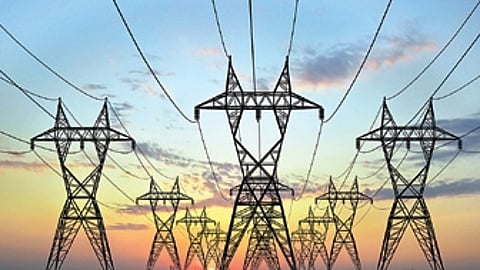

HYDERABAD: The state government has reportedly decided against signing the power purchase agreement (PPA) for NTPC-Ramagundam Phase-2 (3X800MW), citing projected power costs of Rs 8 to Rs 9 per unit, which could burden the consumers. Instead, the government is planning to develop green energy sources such as solar, hydel and wind, which are expected to offer more cost-effective alternatives to the power from NTPC-Ramagundam. The Congress-led state government has blamed the previous BRS government for not signing the PPA for the second phase of NTPC in the last 10 years, which could lead to a rise in construction costs.
Recently, the NTPC wrote to the state government asking it to sign the PPA for NTPC Phase-2 by February 10. Failure to do so may result in the allocation of NTPC Phase-2 power to other southern states, it had said. Government sources, however, have pointed fingers at the previous BRS government for its failure to ink the PPA with NTPC. However, former chief minister K Chandrasekhar Rao, in a press conference in Suryapet on Sunday, contended that it was the responsibility of the Congress government to sign the PPA. “We fought with the Union government and achieved the Phase-1 of NTPC,” he said.
The 4,000 MW NTPC-Ramagundam thermal power plant was an assurance under the Andhra Pradesh Reorganisation Act, 2014. The first phase (2X800MW) of the project was recently dedicated to the nation by Prime Minister Narendra Modi. The state is slated to get 85% of the total 4,000 MW power capacity. The government sources said that due to the BRS government’s discord with the Union government, it neglected NTPC Phase-2. As a result, the Discoms invested heavily in purchasing the power from exchanges, they added.
Even if the construction of NTPC Ramagundam Phase-2 commenced now, it would take another five years to complete the project, the sources said.
Currently, power costs stand at Rs 5.90 per unit, but upon Phase-2 completion, it could soar to Rs 8 to Rs 9 per unit, surpassing open market rates of Rs 2 to Rs 4 per unit, they added. In such a scenario, purchasing power at a higher rate from NTPC would push the Discoms into further losses, the sources opined.
If a PPA is signed with NTPC for 25 years, it could increase the burden on people living in the state, the sources mentioned, adding that it was the reason why the government has decided against signing the PPA. Instead, the government is exploring other options, including sources where power would be available at a lower price, the sources mentioned.
The state government, according to the sources, is also contemplating against constructing thermal power plants in the future, citing high costs and part of plans to encourage hydel, solar and wind power.
New energy policy
The state government is also planning to implement a new policy on energy generation and power purchase. The policy would be prepared while taking the state’s requirements till 2032 into consideration.
The peak power load in Telangana stands at 15,623 MW. Meanwhile, the state is estimating that the peak demand may touch 27,059 MW by 2031–32. The state government may also invite private companies, which can supply power at reasonable costs.
The new power policy of the government would see that there would be no burden on consumers, the sources said. It would focus on renewable energy, as such plants would come into operation within two years, they added.
The government is planning to use solar power for the state’s needs from 10 am to 5 pm in a bid to drastically reduce spending on power. The solar plants would be set up at all 33/11 kv substations and on available government lands. Self-help groups would be encouraged to set up solar plants as well.
The solar plants would also be set up with the partnership of private companies and persons. Solar units would also be set up on the buildings of all government schools, colleges, universities, hostels and offices. The government is also studying how to generate pumped storage power for major and medium projects. There is a possibility of generating 6,732 MW of power at the existing reservoirs, according to estimates.
Talks with Himachal Pradesh
The state government has also noticed that there is a huge potential for hydel generation in Himachal Pradesh. The government would invest money and construct huge hydroelectric plants in Himachal Pradesh and divert the power to the state.
Chief Minister A Revanth Reddy recently held discussions with his Himachal Pradesh counterpart Sukhvinder Singh Sukhu on setting up hydel power plants, the sources said.
Including all these points, the draft new energy policy for the state would be prepared shortly and it would be introduced in the Legislative Assembly after the Lok Sabha polls. The government would also take the views of the stakeholders on the draft policy.
The main reason for the state government to focus on renewable energy was due to the cost escalation of the Yadadri thermal power plant. The cost increased from Rs 6 crore per unit to Rs 10 crore per unit.
Green focus
The government is planning to use solar power from 10 am to 5 pm to reduce spending on power.
Solar units would be set up in the government buildings such as schools, colleges and offices.
The state government is also planning to construct hydroelectric plants in Himachal Pradesh and divert the power to Telangana.